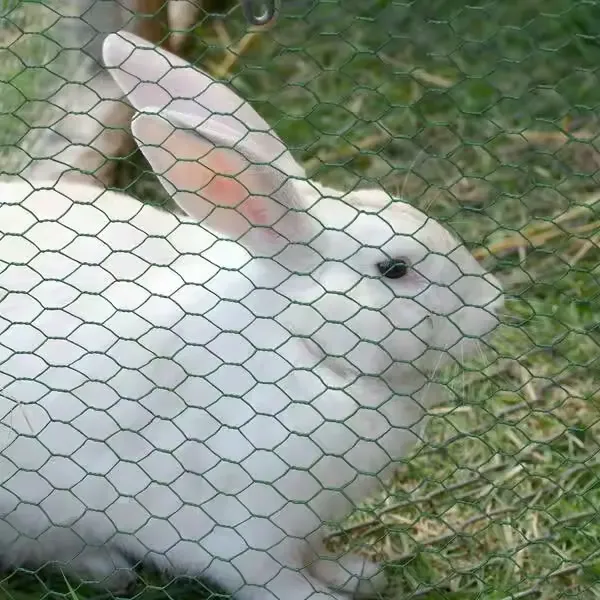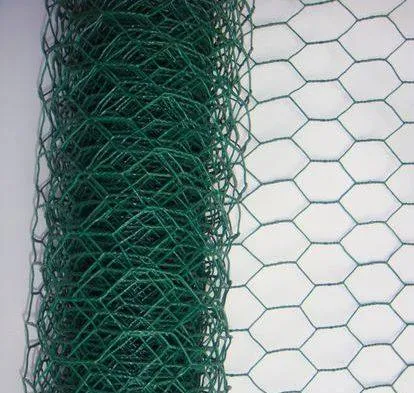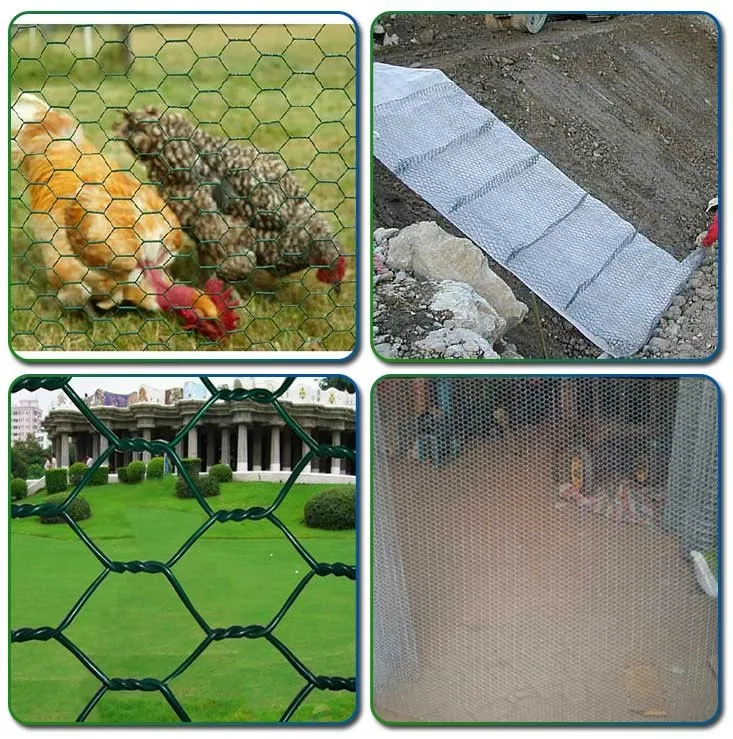Chicken Wire Garden Fence
From protecting tender plants to keeping pests out and pets in, the chicken wire garden fence has long been a go-to solution for gardeners, homesteaders, and farmers. Its lightweight structure, flexibility, and affordability make it a top choice for both decorative and functional fencing needs. Whether you’re sourcing for a backyard project or a farm-scale build, options like wire mesh netting and bulk chicken wire fencing provide practical, scalable, and eco-conscious solutions.

Why Chicken Wire Garden Fence Is a Must-Have for Every Gardener
The chicken wire garden fence is a classic—and for good reason. Lightweight, rust-resistant, and flexible, this fencing option provides a quick and effective way to define garden boundaries and protect what’s inside. Traditionally made from galvanized steel or PVC-coated metal, chicken wire is easy to install, shape, and maintain.
Its hexagonal pattern provides sufficient strength while allowing air and light to pass through, essential for healthy plant growth. Whether you’re shielding vegetable beds from rabbits or fencing in a flock of hens, this type of mesh adapts to your needs. It’s also incredibly versatile—used for compost bins, trellising, and even DIY crafts.
Because the chicken wire garden fence is affordable and available in varying heights, lengths, and gauges, it can be used for permanent structures or temporary seasonal setups. And thanks to its flexibility, it can be curved, bent, or cut to fit any landscape, no matter how uneven.

Wire Mesh Netting: A Multi-Purpose Fencing Marvel
While chicken wire is one form of wire mesh netting, the term broadly refers to woven or welded metal materials used for fencing, screening, or reinforcement. In gardens, wire mesh netting serves not just as a protective fence but as a strong, reusable resource for numerous practical applications.
Its use in trellises, plant supports, compost frames, and animal enclosures makes it a valuable tool for homesteaders and urban gardeners alike. With square or hexagonal openings, it provides superior visibility and ventilation while offering a robust barrier against pests like gophers, moles, or deer.
Galvanized and PVC-coated versions offer extra protection against rust, especially in areas with heavy rainfall or watering systems. This longevity makes wire mesh netting a great long-term investment.
The netting’s mesh size can be selected based on your purpose: finer meshes for rodents, wider for chickens or dogs, and thicker gauges for large livestock. For those managing both flora and fauna, wire mesh netting offers a secure, animal-friendly enclosure without compromising garden aesthetics.
Bulk Chicken Wire Fencing: Cost-Effective for Big Projects
When managing large spaces like farms, orchards, or community gardens, sourcing bulk chicken wire fencing is the most economical and efficient approach. Buying in bulk not only significantly reduces the cost per roll, but also ensures consistency in material quality and dimensions across your entire project.
Bulk chicken wire fencing is often sold in rolls ranging from 50 to 200 feet in length, in heights from 1 to 6 feet. These rolls can be customized to your desired gauge, mesh size, or coating preference. Galvanized options are most common, but black and green PVC-coated versions are also available for those who prefer more subtle or decorative finishes.
Another benefit of buying bulk chicken wire fencing is reduced packaging waste, which aligns with eco-friendly gardening principles. It also allows you to tackle multiple fencing needs—such as garden beds, animal runs, or compost enclosures—with a single purchase.
Some wholesale suppliers offer package deals that include ties, stakes, or installation guides, making it even easier to plan and execute a large-scale fencing project. For landscapers or fencing contractors, stocking up on bulk chicken wire fencing ensures readiness for a wide variety of jobs, from small backyard patches to full-scale agricultural installations.

Installation Tips and Tricks for a Strong, Neat Chicken Wire Fence
Proper installation is key to maximizing the performance of your chicken wire garden fence. While it’s a lightweight and flexible material, chicken wire requires support from posts, rails, or tension wires to stay upright and taut.
Start by measuring your area and mapping out post placement. Wooden, metal, or plastic posts can all work, depending on your soil conditions and desired aesthetic. Secure the wire to the posts using galvanized staples, zip ties, or fencing clips. For added strength, run a tension wire along the top and bottom to keep the mesh from sagging.
To prevent animals from burrowing underneath, bury the bottom edge of the chicken wire at least 6 inches into the ground, angling it outward. For gardens facing heavy deer or predator traffic, consider using taller mesh or layering with wire mesh netting for added defense.
If your fencing needs to be movable (e.g., for rotational grazing or temporary protection), consider making modular panels that can be lifted and shifted easily.
Maintenance is minimal—just check periodically for rust, loose ties, or sagging sections. Galvanized and PVC-coated wires require little upkeep, and if properly installed, your chicken wire garden fence can last for years.
Finding the Right Supplier for Chicken Wire Fencing
Whether you’re purchasing a few meters for your backyard or several hundred feet for a farm, choosing the right supplier for wire mesh netting or bulk chicken wire fencing is essential for quality, longevity, and peace of mind.
Reliable suppliers offer technical specs like wire gauge, mesh aperture, coating material, and tensile strength. Look for manufacturers with ISO certification, and make sure the fencing meets local agricultural or construction codes.
Online wholesale platforms often carry a range of fencing options, allowing you to compare prices, read reviews, and find products suited for your climate and application. Many manufacturers also offer custom branding, OEM services, or bulk discounts, making them a great choice for retailers or contractors.
Finally, consider the delivery method. Rolls should be packed securely and shipped with clear labeling. Some suppliers include installation guides or accessories like U-posts, clamps, or clips to simplify setup. A trusted source ensures your chicken wire garden fence arrives ready to perform.
Wire Mesh Fence FAQs
What is the difference between chicken wire and wire mesh netting?
While chicken wire is a type of wire mesh netting, the latter is a broader category that includes woven and welded mesh with various shapes and sizes. Chicken wire typically has a hexagonal pattern and is used for light fencing, while wire mesh netting can include square grids or reinforced styles for heavier-duty uses.
Can I use chicken wire to keep out small animals like rabbits or squirrels?
Yes, but choose chicken wire with a tighter mesh size, such as 1/2 inch, to keep out small animals. To prevent burrowing, bury the bottom of the wire several inches into the soil. For particularly persistent pests, layering with welded mesh or hardware cloth may be more effective.
Is bulk chicken wire fencing cheaper than buying smaller rolls?
Absolutely. Purchasing bulk chicken wire fencing reduces the per-foot cost, minimizes packaging waste, and ensures consistent quality. It’s ideal for large gardens, farms, or contractors who need multiple fencing installations.
How long does a chicken wire garden fence last?
With proper installation and depending on the environment, galvanized chicken wire garden fence can last 5–10 years. PVC-coated versions often last longer, especially in humid or salty environments. Regular checks and minimal maintenance help extend its life.
Where can I buy quality chicken wire in bulk?
You can purchase bulk chicken wire fencing directly from fencing suppliers, agricultural stores, or online platforms that specialize in farm and garden equipment. Look for certified manufacturers offering clear specifications, corrosion-resistant coatings, and favorable shipping terms.
-
Innovations in Razor Barbed Wire Design TechnologyВестиAug.11,2025
-
Roofing Nail Compatibility with Different Metal Roof TypesВестиAug.11,2025
-
Welded Wire Mesh for Rockfall Protection BarriersВестиAug.11,2025
-
Galvanized Wire Corrosion Resistance TestingВестиAug.11,2025
-
3D Fence Solutions Preventing Bird CollisionsВестиAug.11,2025
-
Using Chain Link Fence for Urban Garden SupportВестиAug.11,2025




